Find It or Else
Once Nasruddin was traveling on business when he rushed into the local teahouse in a panic, yelling, “I have misplaced my saddlebag! You must find it for me at once, or else — I know what I’ll do! If I don’t find it, by Allah! I’ll have to —”
“Don’t panic, Mullah, no need for desperate measures,” Hussein assured him. “I’ll help you find your old saddlebag. Now just sit down and think for a moment: where was your bag the last time you saw it?”
So he helped Nasruddin retrace his steps, and sure enough, they found the saddlebag, right where he left it.
As they returned to the teahouse, Hussein asked, “What were you saying that you would have done if we hadn’t found your saddlebag, Nasruddin?”
“Well, I would have had to cut up an old kilim rug I have in my shed and stitch it together to make a new one.”
Excerpted from The Uncommon Sense of the Immortal Mullah Nasruddin: Stories, Jests, and Donkey Tales of the Beloved Persian Folk Hero
 Your Daily Nasruddin
Your Daily Nasruddin 
This story shows how you may threaten people to get them to help you. Just say, “Or else…!” in an agitated or even slightly insane manner, then trail off and never complete your statement. But after you acheive your goal, when someone confronts you asking what the alternative was, smile and tell the truth.

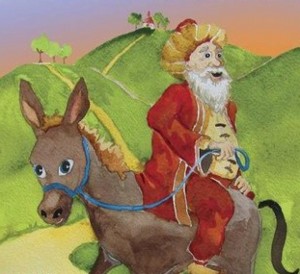
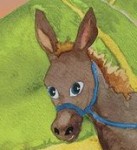
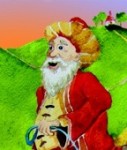
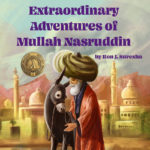
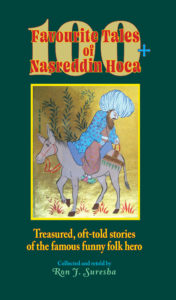
Do You Believe Me, or the Donkey?
Do You Believe Me, or the Donkey?
Excerpted from The Uncommon Sense of the Immortal Mullah Nasruddin: Stories, Jests, and Donkey Tales of the Beloved Persian Folk Hero
Another example of Nasruddin’s brilliant idiocy.